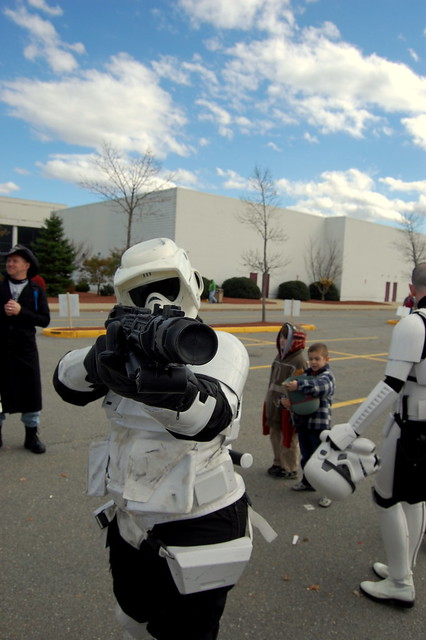Ender's Game and Bullying
/ Reading Orson Scott Card's novel Ender's Game ten years after I had first picked it up left me coming away from the book with several new insights into the story. I've found that the book was even more relevant than when I had first read it, accurately capturing how technology would be used for human interactions, while the military elements of the book hold an especially important place when looking at what the world is like today. Something that I didn't expect, however, was just how important the role of power was to the characters.
Reading Orson Scott Card's novel Ender's Game ten years after I had first picked it up left me coming away from the book with several new insights into the story. I've found that the book was even more relevant than when I had first read it, accurately capturing how technology would be used for human interactions, while the military elements of the book hold an especially important place when looking at what the world is like today. Something that I didn't expect, however, was just how important the role of power was to the characters.
In a number of circles in the speculative fiction world, Orson Scott Card's name is an invitation for quite a bit of criticism due to his vocal opposition to a number of social issues, namely that of same-sex marriage. It's an interesting thing then, that the book is particularly relevant in the age of 'It Gets Better', following the suicides of numerous gay teenagers across the country after instances of bullying.
Bullying has become a hot-button issue for schools and communities across the country. Recently, in my home state of Vermont, an entire school, with a number of parents joining them, staged a sit-in to support a fellow teenager who had been bullied at the school over his sexual orientation. In the opening scenes of Ender's Game, a young Andrew Wiggin is attacked in a surprisingly similar manner:
"Hey, Third." Don't answer. Nothing to say. "Hey, Third, we're talkin to you, Third, hey bugger-lover, we're talkin to you."
The scene goes as one might expect: Andrew - Ender - is grabbed by several other children in the group and attacked, before striking out and kicking Stilson, and continued to pummel him until the other boy was unable to fight. At the end of the book, it's discovered that Ender actually killed his classmate.
Other incidents happen shortly thereafter at Ender's home, with his brother Peter and when he attends Battle School, when he's targeted by his first commander, Bonzo Madrid. Peter uses physical force to bully his younger brother, giving in to aggression that he later worked to mitigate and apologize for, while Bonzo attempted to use psychological force against the boy, keeping him isolated and using humiliation to dominate him. The actions of both are instrumental in Ender's desire to move forward in the novel, providing him with a good degree of motivation to succeed.
Card makes it a point to demonstrate that each of the boys who bullied Ender are weak in their own ways: Peter is unable to control his aggression, while both Stilson and Bonzo are afraid: Stilson because of his size, Bonzo because of the legacy that he faces due to his heritage. Bullying, from my own experience and from what I've generally heard from various places, is a technique to try an gain power over another person. Psychologically, they have their own issues, with the aggression a result of that. Card goes to some lengths to paint this aggression in a larger picture, symptoms of a system that's fighting tooth and nail to help the human race survive.
While reading Ender's Game, I couldn't help but think that the kids whom 'It Gets Better' is intended for wouldn't be helped somewhat by reading Ender's Game, and realizing that their stories aren't something new or sadly, even unique, but also that there is a way out at the end. Ender learns much at the hands of his own personal aggressors, learning to survive and to come out on top. At the same time, it's a good book for some of those at the other end of the engagement to read, to understand that there are other deeper and far more costly consequences to their actions, not only to their victims, but to themselves as well.
Card might not appreciate the irony of this, but Ender's Game feels like the perfect tool for a gay high school student to learn how to endure and survive those who are out to hurt them. But, regardless on his own views on how people should live their lives, it's a book that stands well on its own, and one that can go as far to make a miserable couple of years all that much better.

 Heather, from the NEG
Heather, from the NEG Marie, from the Canadian Garrison
Marie, from the Canadian Garrison